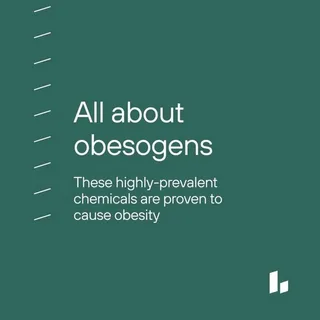Introduction
Obesogens are a class of chemicals suspected of contributing to obesity by disrupting the body’s metabolism, fat storage, and appetite regulation. These substances can interfere with hormonal balance, influencing weight gain and making weight loss more challenging. As obesity rates worldwide continue to rise, understanding the role of obesogens in this trend is becoming increasingly important. This guide will explore what obesogens are, how they affect our health, and strategies for reducing exposure.
Understanding Obesogens
Obesogens are primarily found in certain plastics, personal care products, pesticides, and industrial chemicals. They can mimic or interfere with the body’s natural hormones, particularly those involved in growth, development, and metabolism. The most well-known obesogens include:
- Bisphenol A (BPA): Used in plastics and the lining of some food and beverage cans.
- Phthalates: Found in plastic food containers, toys, personal care products, and cosmetics.
- Organotins: Such as tributyltin (TBT), used in antifouling paints and some fungicides.
- Perfluoroalkyl and Polyfluoroalkyl Substances (PFAS): Used in non-stick cookware, water-repellent clothing, and some food packaging.
How Obesogens Affect Health
Obesogens can disrupt endocrine function in several ways, contributing to obesity by:
- Altering Fat Storage: Promoting the growth of fat cells and the storage of fats.
- Influencing Appetite and Metabolism: Interfering with the hormones that regulate appetite, satiety, and metabolism.
- Affecting Energy Balance: Modifying how the body regulates energy balance and uses dietary fats and sugars.
The Science Behind Obesogens
Research on obesogens is still evolving, but animal studies and some human epidemiological studies have shown a correlation between exposure to certain chemicals and increased fat accumulation. For instance, exposure to high levels of BPA has been linked to obesity and metabolic disorders in several studies.
Reducing Exposure to Obesogens
While completely avoiding obesogens in the modern environment may be challenging, there are several strategies to minimize exposure:
- Choose Glass or Stainless Steel: Opt for these materials instead of plastic for food and drink storage.
- Avoid Processed Foods: These often come in packaging containing obesogens.
- Be Mindful of Personal Care Products: Look for products free from phthalates and parabens.
- Cook at Home: Home-cooked meals reduce the risk of exposure from restaurant food packaging.
- Limit Non-Stick Cookware: Consider alternatives to non-stick pans that may release PFAS.
- Stay Informed: Keep up to date with research on obesogens and their sources.
FAQs
Are obesogens scientifically proven to cause obesity?
While there is a growing body of evidence suggesting obesogens can contribute to obesity, research is ongoing. The relationship between specific chemicals and obesity is complex and influenced by various factors, including genetics, diet, and lifestyle.
Can obesogens affect children more than adults?
Yes, children are particularly vulnerable to obesogens due to their smaller size, higher metabolic rate, and the critical development stages they go through. Prenatal exposure can also have long-term effects on weight and metabolism.
How can I tell if a product contains obesogens?
Check product labels for specific chemicals like BPA, phthalates, and PFAS. Many manufacturers now advertise products as being free from these substances due to consumer demand.
Are there any regulatory bodies overseeing the use of obesogens?
Yes, organizations such as the U.S. Environmental Protection Agency (EPA) and the European Chemicals Agency (ECHA) regulate the use of certain chemicals suspected of being obesogens. However, regulations vary by country and may not cover all obesogens.
Can diet and exercise overcome the effects of obesogens?
A healthy diet and regular exercise are crucial for overall health and can help mitigate some effects of obesogens. However, reducing exposure to these chemicals is also an important part of managing their impact on health.
Is there a way to detox from obesogens?
While the body has natural detoxification systems, minimizing exposure to obesogens is the most effective strategy. Eating a diet rich in antioxidants and fiber can support the body’s detox processes.
How significant is the risk from obesogens compared to other factors like diet and exercise?
While obesogens can contribute to obesity, diet and physical activity remain the most significant factors. However, understanding and minimizing obesogen exposure can be an important part of a holistic approach to managing weight and improving health.
Conclusion
Obesogens represent a complex and emerging field of study in the understanding of obesity and metabolic health. While the environment is replete with these chemicals, informed choices and lifestyle changes can significantly reduce exposure. As research continues to unravel the intricacies of how obesogens affect our health, it becomes increasingly clear that a proactive approach to minimizing contact with these substances, combined with traditional health advice, can contribute to better health outcomes. Awareness and action are key steps in navigating the challenges posed by obesogens in our environment.
- Vista Edge Vape For Beginners: How To Avoid Common Mistakes - June 2, 2025
- Redensity 1 Skin Booster Treatments Near Bramley, Surrey - June 1, 2025
- Skin Treatment & Skincare Consultations Near Bletchingley, Surrey - June 1, 2025




